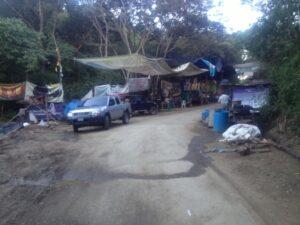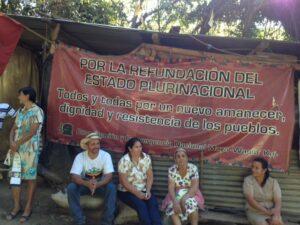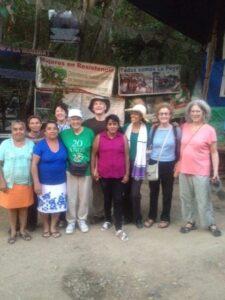Guatemalan Communities Steadfast in Resistance to Mining Project
We continue to stand in solidarity with the Guatemalan communities of San José del Golfo and San Pedro Ayampuc in their peaceful resistance to the Progreso VII Derivada gold project. As a result of their struggle, the nation of Guatemala faces a $300 million arbitration claim from Kappaes, Cassiday & Associates’ (KCA) over allegations of violating the Central America-Dominican Republic Free Trade Agreement (CAFTA-DR). This is, however, just one of the communities’ many fights against KCA’s exploitation.

This conflict began when Kappes, Cassiday & Associates’ (KCA), a U.S. engineering firm, purchased mines from the Canadian mining company, Radius Gold Inc., which had previously built mines in rural, south-central Guatemalan communities without a legal permit. In 2011, the residents of San José del Golfo and San Pedro Ayampuc denounced the potential environmental and health impacts as well as the violent imposition of the mine. They came together to resist the impending introduction of KCA machinery by establishing a peaceful resistance encampment known as “La Puya.” La Puya established a non-stop blockade, restricting the entry and movement of machinery for many years. Even though they are using peaceful methods of resistance, the protestors of La Puya have experienced harassment, violence, and multiple eviction attempts.

The arbitration claims are especially concerning as CAFTA-DR allows transnational corporations to utilize an international arbitration system known as Investor State Dispute Settlement (ISDS), which privileges corporate interests to the detriment of the environment and local communities—This system is not a court of law, but rather a secretive panel consisting of highly-paid corporate lawyers that bypasses national courts and threatens the decision-making sovereignty of countries by demanding the national governments must pay out millions for the companies’ business losses. While the tactic of the ISDS is meant to intimidate national governments, social movements in neighboring El Salvador have actually won when an international tribunal dismissed a claim by a multinational mining company.

La Puya continues to resist this corporate assault by denouncing the military presence in San José del Golfo that has been deployed since January 11, about one month after KCA filed its arbitration claim. They have requested an explanation for this military presence and have called upon the Guatemalan State to respect national and international human rights standards. La Puya has also pushed for the CAFTA-DR to be declared as conflicting with the Guatemalan Political Constitution, as Guatemalan has already been subject to the economic extraction of $32.4 million via US companies, such as RDV and TECO, and face other substantial arbitration claims.
Our staff visited with the La Puya encampment in 2013, which is receiving advocacy and organizing support from our partner the Peasant Unity Committee. We continue to stand by La Puya and support their efforts to preserve the land, water, and well-being of these Guatemalan communities.
About the Author: Shaniah Lindsey began interning at Grassroots International in January 2019 during her senior year at Emmanuel College. She is currently pursuing a degree in Sociology with a concentration on Social Inequality and Social Justice. She hopes to continue her education and become a licensed social worker to create positive change within her local and global communities.
